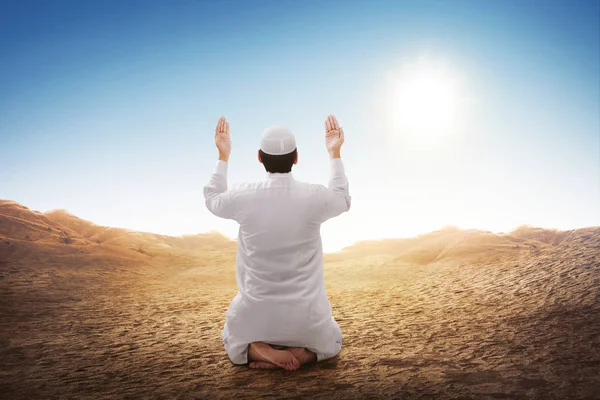
The laws governing the shortening of Salah
Ulama Institute #1
Looking to learn Arabic or memorize the Quran?
Check our Trusted Teachers

The shortening of prayers (qasr) means performing two rak’ahs in place of four in the four rak’ah prayers. This means that Dhuhr, ‘Asr and ‘Ishaa will be shortened while the Maghrib and Fajr prayers cannot be shortened. Concerning qasr, Allah ﷻ says:
وَإِذَا ضَرَبْتُمْ فِى ٱلْأَرْضِ فَلَيْسَ عَلَيْكُمْ جُنَاحٌ أَن تَقْصُرُوا۟ مِنَ ٱلصَّلَوٰةِ إِنْ خِفْتُمْ أَن يَفْتِنَكُمُ ٱلَّذِينَ كَفَرُوٓا۟ ۚ( سورة النساء: ١٠١ )
“And when you travel throughout the land, there is no blame upon you for shortening prayer, [especially] if you fear those who disbelieve may disrupt (or attack] you. [Soorat an-Nisaa:101]
The Prophet ﷺ also said:
صدقة تصدق بها الله عليكم فاقبلوا صدقته ( رواه مسلم )
“It is a charity that Allah has given you, so accept His Charity.” [Muslim]
From the various ahaadeeth of the Prophet ﷺ we leam that he shortened prayers frequently while on travel and his Companions did the same.
– According to majority of scholars, making qasr is an act that is part of the Sunnah.
The rule of gasr applies to a person on a journey and can be termed as musaafir (traveler). There are various views of what would be considered as a journey and thus who could be termed as a musafir.
The distance of 48 miles (77 km) is the minimum distance specified by most scholars. This means that it is a condition for the permissibility of qasr that a person should have the intention to travel a minimum distance of 48 miles.
The traveler may start performing shortened prayers immediately upon leaving the boundaries of the town and should continue to shorten prayers for the duration of the journey. He/she will continue to perform qasr at his/her destination if his/ her stay is for a limited period of time.
-It is the view of some scholars that a traveler who intends to stay in a place for four days or more, must pray the complete Salah.
– Some scholars say 15 days or more.
The wisdom behind this lies in the fact that the traveler will be rested and away from the hardships associated with travel and thus no necessity for shortening Salah is evident. Only the traveler’s intentions can determine the actions of either shortening the prayers or otherwise.
A traveler is also exempted from praying all voluntary prayers, except the Sunnah prayers of Fajr and Witr. Hafs ibn ‘Asim reported:
قال ابن عمر رضي الله عنهما : صحبت النبي صلى الله عليه وسلم فلم أره يسبح في السفر ، وقال الله عز وجل: ”لَقَدْ كَانَ لَكُمْ فِي رَسُولِ الله أَسْوَةٌ حَسَنَةٌ” ( البخاري )
Ibn ‘Umar went on a journey. He said, “I accompanied the Prophet and he did not offer the nawaafil (voluntary prayers) during the journey, and Allah says: “Indeed! You have in the Messenger of Allah a good example to follow.” [AL-Bukharri]
Ibn “Umar said:
قال ابن عمر: لو كنت مسبحا لأتممت (مسلم)
“If we are able to pray the voluntary prayers, then we will be able to complete the obligatory prayer.” [Musim]
It is important to note that the traveler may perform whatever voluntary prayer he/she wishes to without any objection for doing it. On the day of the conquest of Makkah, the Prophet ﷺ prayed Ad-Duhaa (the forenoon prayer) as eight raka’aat while he was traveling.
Shortening Salah is allowed for all travelers. There is no distinct difference between the traveler who rides or the one who walks. There is also no difference between the person who travels by horse, camel, car, train or by air.
It is a great reward for a Muslim who shortens Salah while on a journey. The Prophet ﷺ said:
( رواه مسلم ) صدقة تصدق بها الله عليكم فاقبلوا صدقته
“It (qasr) is a gift from Allah which he has bestowed upon you, so you should accept it.” [Muslim]







